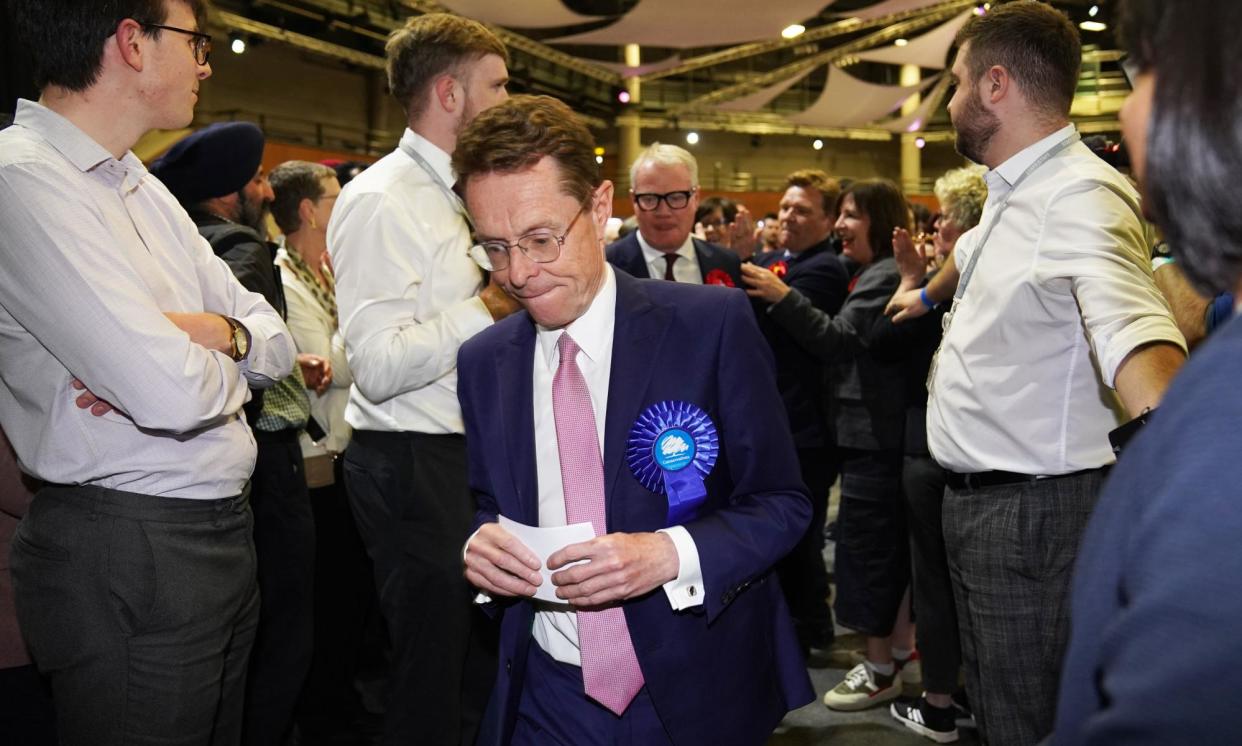Andy Street’s West Midlands defeat shows the heavy baggage of brand Tory

After a nail-biting finale, Andy Street has become the most high-profile victim of tanking Tory support in May’s elections.
With the Conservatives shedding seats across the country on Friday, all eyes were on the West Midlands on Saturday to see if he could cling on by sheer will of personality – or “Brand Andy” as he calls it.
In the end, it wasn’t enough and Labour inched ahead with just over 1,500 more votes, in what was seen as a shock result. Just a day earlier sources in the party had been briefing that they expected to lose.
The region provided an interesting backdrop, with multiple complex issues playing out throughout the campaign, making it particularly hard to predict.
For one, there was Labour’s stance on Gaza and the growing evidence that Muslim voters have turned away from the party as a result.
The West Midlands has a higher than average Muslim population, particularly in Birmingham, where it stands at 30% according to the 2021 census.
Labour sources were quick to blame their anticipated loss on the Gaza issue in the day before the result, saying if Street won it was down to that.
It did appear the party lost votes in Birmingham to the independent candidate Akhmed Yakoob, who came third with almost 20% of the vote share.
His campaign focused heavily on Gaza, and he was seen campaigning with George Galloway shortly before polling day.
There was also the issue of Labour-led Birmingham city council going bust last year, and recently announcing a 21% hike in council tax rates, alongside a swathe of cuts.
Labour had insisted this was not expected to affect the mayoral result, and that there was much more anger towards the Conservative government after a decade of austerity.
It’s no surprise that Street worked hard to distance himself from the Conservative party more broadly, and the scandals and turmoil that have led to its waning support in recent months.
The former John Lewis boss has always positioned himself as more of a businessman than a politician, and has long avoided embroiling himself in political debates, sticking solely to West Midlands issues.
You would struggle to find many references to his political party in any of his campaign material and he openly stated he was focusing on “Brand Andy” as he believed it was “a very personal election about choosing one person to lead a region”.
The tactic paid off for Ben Houchen in Tees Valley, where Labour said they were up against a “pseudo-independent” candidate, but wasn’t enough for Street to secure his third term in office.
By comparison, Labour’s candidate, Richard Parker, was probably hoping his party would pull him through. He is relatively unknown, a management consultant with no prior experience in frontline politics.
In one hustings event leading up to the vote, he was asked: “No one has heard of you, is that the best Labour can do?”
But after unseating someone like Street, he is likely to become a much more recognisable name.
A win like this in the West Midlands, brimming with Labour target seats, will leave the party buoyant heading into the general election – and the Conservatives worried that even big personalities like Street can’t hold out in the current political climate.

 Yahoo News
Yahoo News 
